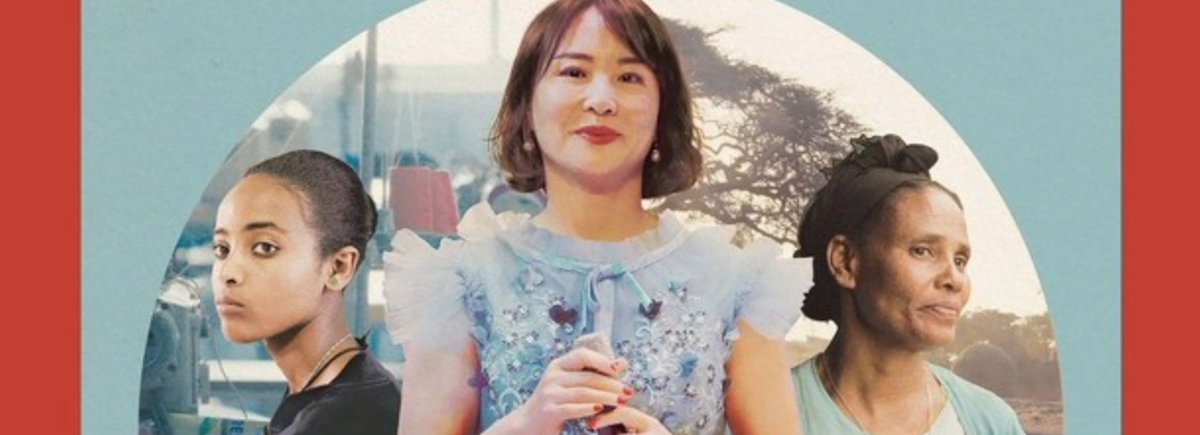The San Luis Obispo International Film Festival has given SLO Review the opportunity to preview some of the narrative and documentary films on the festival’s April 24-29, 2025 program schedule. Follow the links to purchase tickets to see these notable films for yourself.
Messy Relationships
Made in Ethiopia opens with a wedding celebrating the marriage of a Chinese man and an Ethiopian woman. The documentary then moves to long, distant aerial views of a massive industrial complex not far from Ethiopia’s capital Addis Ababa, and narrows again to Motta, a middle-aged Chinese woman, discussing an expansion of the factories onto adjacent farmland.
Messy relationships in Ethiopia between the Chinese and local politicians, farmers, and workers thwart Motta’s goal of expanding the factory operations. The film follows not only the difficult business and personal life of one Chinese businesswoman, but also the tedious production roles of Ethiopian workers and the equally frustrating roles of Chinese managers who want the Ethiopians to work like loyal factory workers in China.
China’s huge investments of personnel energy and infrastructure in Ethiopia clash with local traditional work ethics, and the disparity between cultures and the conflicts that result from the Chinese rapidly instituting their labor requirements are shown in the unsettled personal lives of all.
Employing thousands of rural native women (but fewer men) in gigantic garment and shoe production spaces, the largest industrial park in Ethiopia is managed by Chinese nationals—nearly 10,000 miles from their homes and families—who are players in the Chinese government’s political and economic influence in Ethiopian affairs.
In 90 minutes, directors Max Duncan and Xinyan Yu relentlessly document these conditions and the lives of those involved. Their work won them a special mention in the best documentary feature competition at the 2024 Warsaw International Film Festival and a special jury mention for documentary feature at the 2024 Tribeca Film Festival.
Is the film questioning the methods of the growing global influence of China? Is the film questioning the rightness of changing from an agrarian culture to one of industry? Is the film empathetic to the conflicted personal lives of the Chinese and the millions of Ethiopians, the majority of whom are under the age of 18?
Made in Ethiopia presents no simple answers, but depicts a situation in which few goals are met, few lives are satisfied, and the intentions of the Chinese government in bringing work to Ethiopia are inconclusive and discomfiting.
Editor’s Note: Screenings of Made in Ethiopia (United Kingdom, run time 90 minutes, not rated, in English and Ethiopian) at the SLO International Film Festival are sponsored by the Bame Living Trust.
